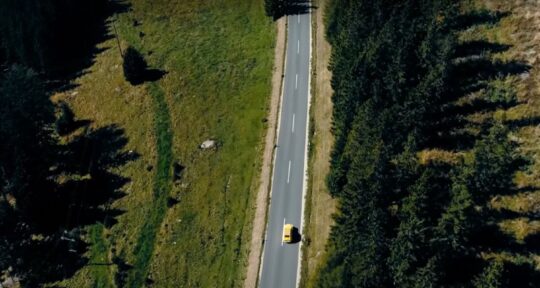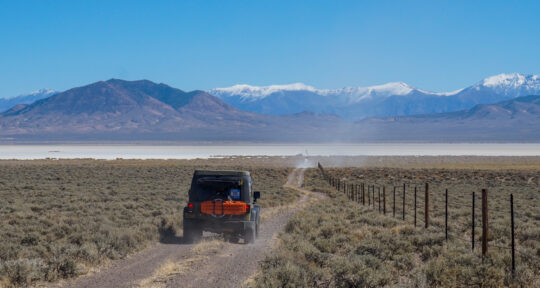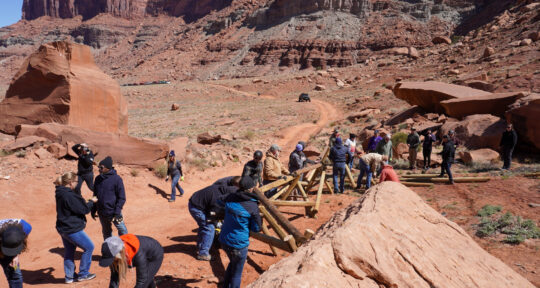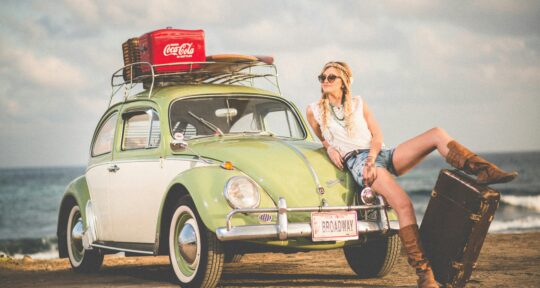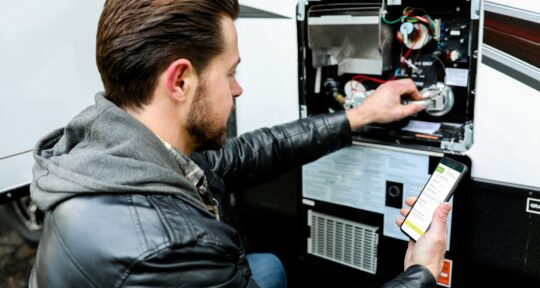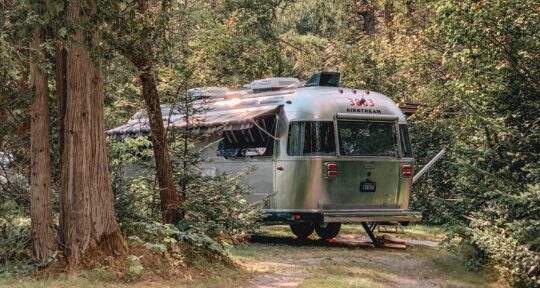For those of us still driving internal-combustion vehicles, a road trip means burning through cruddy fossil fuels—and short of buying a new car or waiting for RV technology to catch up, there’s not a lot we can do about that. But there are plenty of other ways we can lessen our environmental impact, without muddling up our carefree adventures.
The first thing to remember in the pursuit of sustainability is this: Don’t try to be perfect. Instead, start with one or two of the ideas below and see how it goes. You might find shifting a few habits not only makes road life more environmentally friendly, but also simpler, healthier for your body, and better for your budget.
Choose consumables wisely
It’s easy to buy a lot of junk we don’t need while out on the road. We can deep dive into how our growth-economy and throw-away culture has led us to an environmental precipice—but it’s quicker to say, let’s just stop taking more than we need.
If ditching disposable stuff is on your reform list, here are some areas where you can cut back:
Food and drink
Reusable tableware, utensils, and food storage containers instantly prune back restaurant waste. We’ve tested out a lot, and here are a few of our favorites, all BPA-free and made by companies aiming to be responsible: Sea to Summit’s nesting food containers, which collapse to fit in a purse, don’t let in cooler water, and keep fragile ingredients from getting crushed; HydroFlask’s insulated coffee mug, which fits nicely in camp-chair cup holders and is sealable; MSR’s stainless-steel camping plates and bowls, because they’re not plastic, and they’re durable and lightweight with an elegant design; and GSI’s Fairshare mug, because it holds a lot, and is insulated and useful for all kinds of things.
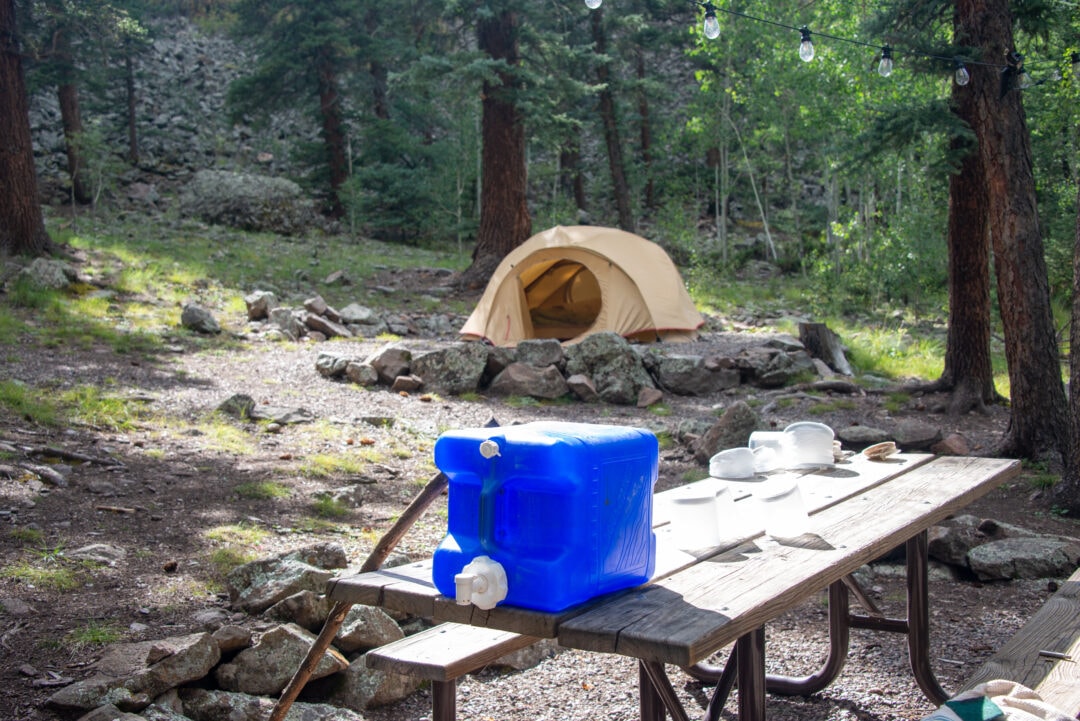
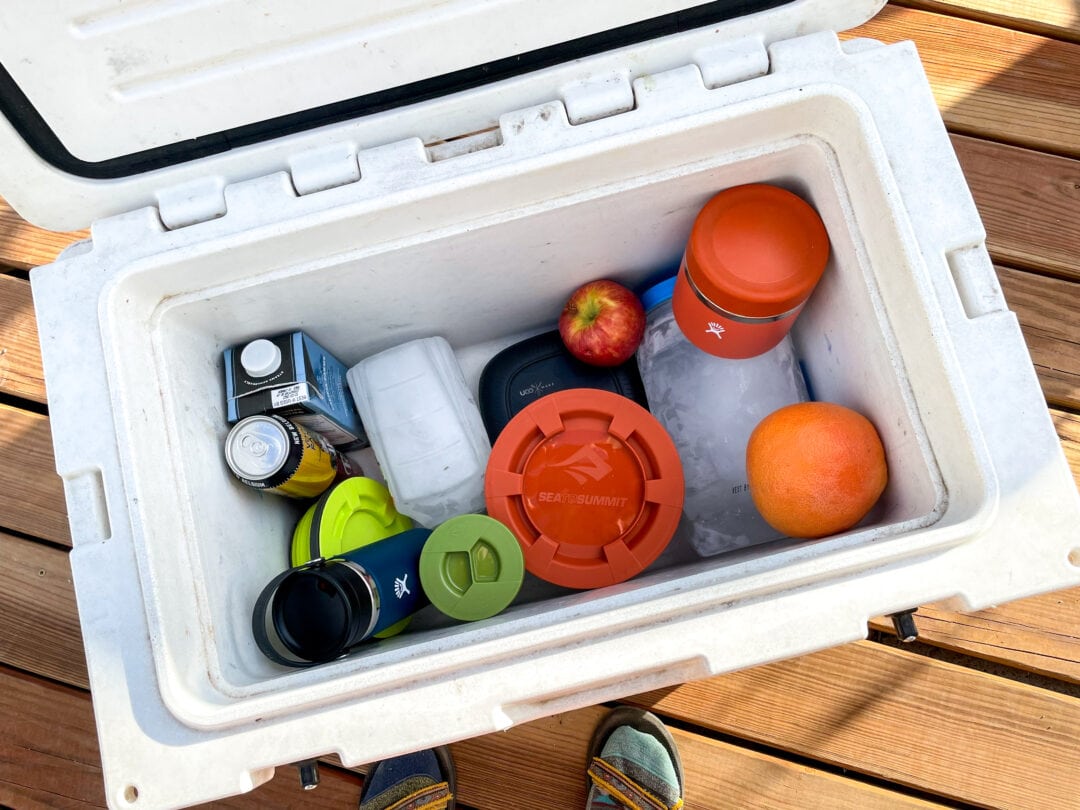
Water and ice
We made the switch to personal stainless water bottles years back, but it wasn’t until recently that we kicked the single-use plastic gallon jug habit. We particularly like this jerry can from LifeSaver because it comes with a built-in filter and we feel comfortable refilling it from whatever spigot we can find, and this one when we’re in a car, because it’s collapsible.
For keeping the cooler cold, we started repurposing other plastic containers, like juice bottles, by filling them with water and pre-freezing them, and using ice blocks, which last longer than cubes. If you happen to live by a bulk-ice machine, that’s another way to save the bag.
Souvenirs
Resist the urge to buy throwaway gifts and souvenirs, especially plastic ones. They’re fun for a moment, but then clutter up your life and eventually the landfill. Also, avoid buying animal products like seashells, jewelry made from coral, and anything trimmed with fur, as those are often harvested in unsustainable ways and under cruel conditions.
Other gear and products
In general, when you can swing it financially, buy gear that will last a lifetime. Use canvas shopping bags instead of single-use ones, and buy things packaged in aluminum and glass instead of plastic. Aluminum is the most recyclable, and recycling it saves 95 percent of the energy it takes to make it from scratch. But check your beer cans, as some are wrapped in plastic and that needs to be removed first.
In addition, these batteries from PaleBlue are fantastic, as they can be recharged with a USB port. And so is this soap from Alpine Provisions, since it’s packaged in aluminum and castile soap in general is the most nature-friendly soap, especially for camping.
Respect your destination
As we’re rapidly learning, environmental sustainability and social equity and justice are intertwined, so it’s important to consider your impact on the people and cultures of your destination. This is another deep-dive subject, but here’s the quick version: Remember that you are on vacation, but locals will have to deal with your consequences long after you have left, so treat places and people with appropriate respect.
Try to avoid high-tourist areas in season, choose eco-friendly lodging and guides, and support green businesses. If you can pick destinations close to home, and that are walkable or bikeable once you get there, all the better. One great way to contribute and meet locals is to join them on a trash cleanup, or just pick up garbage when you see it.
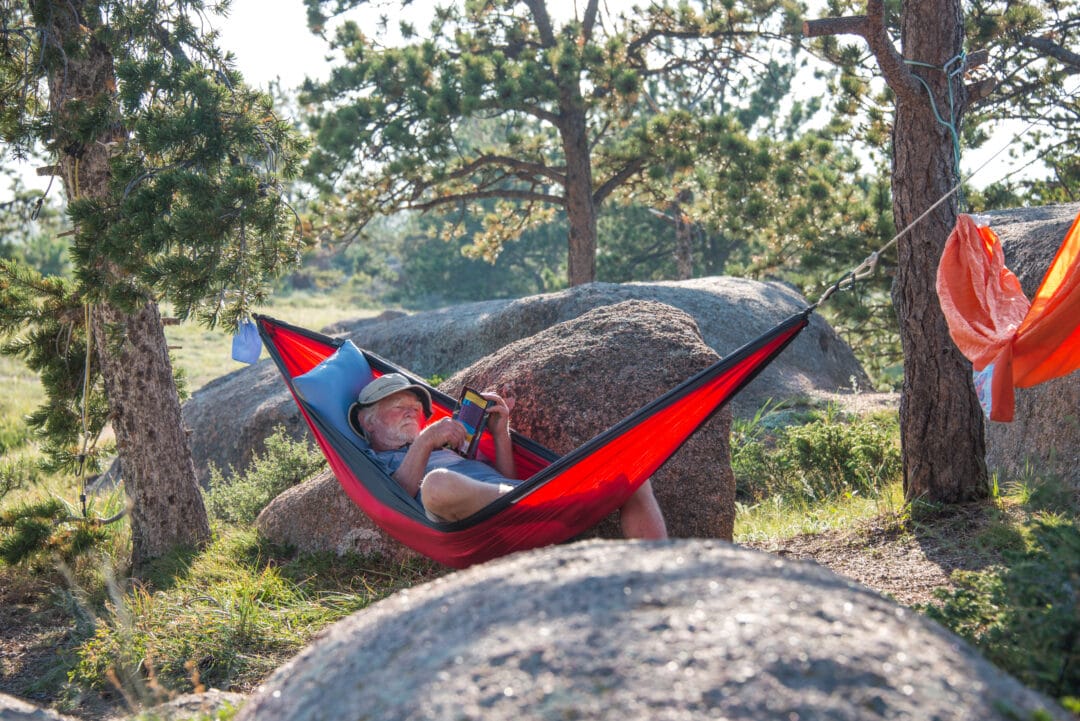
Recommended reading
There are some obvious ways to lessen our impact, like recycling and not using mini hotel toiletries. Then there are more subtle-but-powerful decisions, like bringing along a good book that challenges the way we think about our relationship to the land and our own selves. We love bird and geology guides, along with these authors: Gary Ferguson and Mary Clare, Jon Turk, Terry Tempest Williams, Amy Irvine, Edward Abbey, and Jack Kerouac.
While camping
We like to think of ourselves as guests in the wilderness. Leave No Trace (LNT) principles are a great starting guide for minimizing impact while hanging in the outdoors. They include: plan ahead and prepare, travel and camp on durable surfaces, properly dispose of waste, leave what you find, minimize campfire impacts, respect wildlife, and be considerate of others.
We also rely on a few products that help us practice LNT. This portable fire pit burns wood more efficiently, doesn’t damage the ground, really cuts down on one’s chances of burning down the forest, and nixes smoke-in-the-eyes hassles. This cassette toilet by Thetford is pretty comfy and keeps the camp free of buried waste. And this refillable propane canister from Ignik replaces throwaway green canisters, plus packs safely in the car.
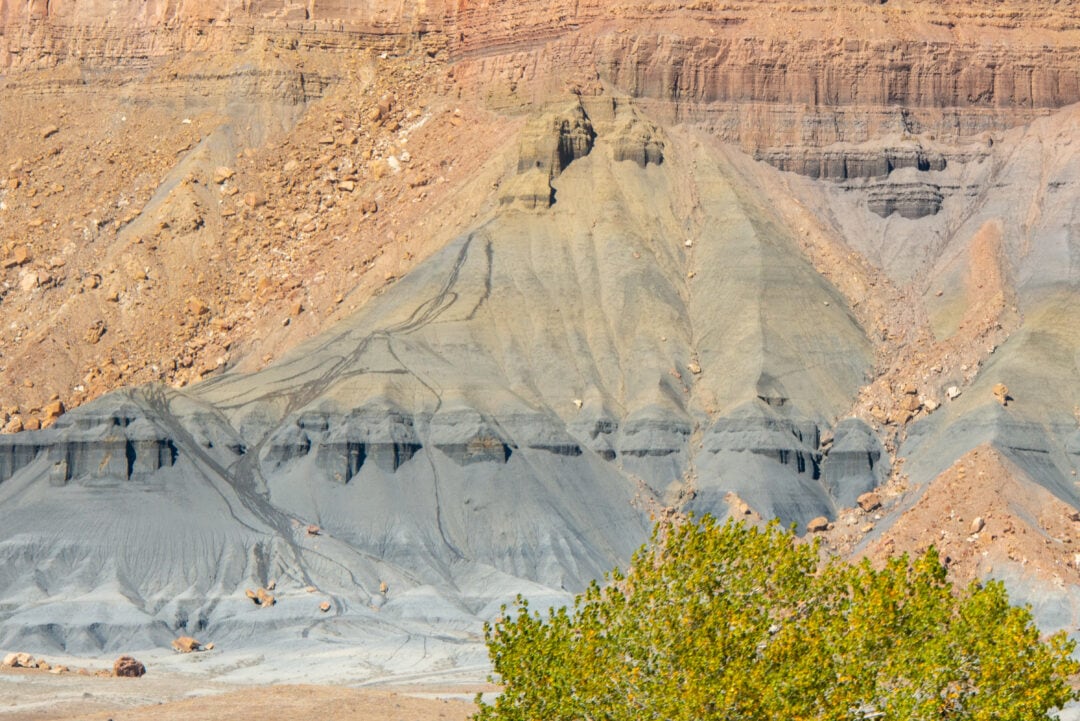
While off-roading
Similar to LNT, Tread Lightly is an organization with some solid principles on how to not mess up nature (and how to not mess up our existing off-road privileges). Its core principles are: travel responsibly, respect the rights of others, educate yourself, avoid sensitive areas, and do your part.
How to be a responsible overlander or off-roader, according to the experts
The further back in nature you get, the more destructive vehicles are, so if you’re going to head off the pavement, first check out the Tread Lightly website for in-depth advice.
This article has links to products that were carefully selected by our editors. We may earn commission on your purchases from these links. Visit this page for the full details of our affiliate marketing policy.
